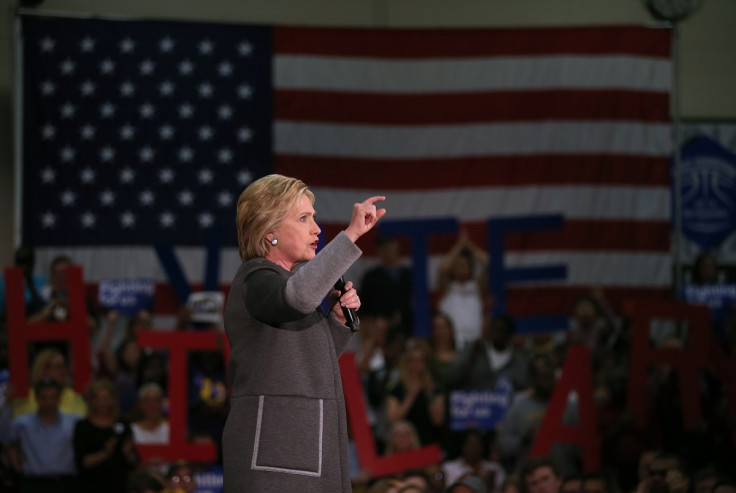Super Tuesday 2016: How many delegates are at stake and where do the candidates stand?

The much-anticipated Super Tuesday will take place on 1 March in a number of American states. Two candidates, Democrat Hillary Clinton and Republican Donald Trump, will look to solidify their leads and possibly their nominations for the general election. The remaining five candidates, meanwhile, are hoping to gain enough delegates to remain in the race.
The two frontrunners are leagues ahead their rivals in the number of delegates they have and are expected to sweep through on 1 March. Clinton has 546 delegates to Bernie Sanders' 87 delegates. Meanwhile, Trump leads the GOP field with 82 delegates. He's followed by Ted Cruz (17), Marco Rubio (16), John Kasich (6) and Ben Carson (4).
There are currently 865 delegates up for grabs for Democrats and 595 delegates for Republicans. Georgia, Massachusetts and Texas have the most delegates at stake for both parties. Democrats need 2,383 delegates to win the nomination and Republicans need 1,237.
Delegates for Super Tuesday
Alabama: 53 (Democrats) and 50 (Republicans)
Alaska: 28 (Republicans)
Arkansas: 32 (Democrats) and 40 (Republicans)
Colorado: 66 (Democrats)
Georgia: 102 (Democrats) and 76 (Republicans)
Massachusetts: 91 (Democrats) and 42 (Republicans)
Minnesota: 77 (Democrats) and 38 (Republicans)
Oklahoma: 38 (Democrats) and 43 (Republicans)
Tennessee: 67 (Democrats) and 58 (Republicans)
Texas: 222 (Democrats) and 155 (Republicans)
Vermont: 16 (Democrats) and 16 (Republicans)
Virginia: 95 (Democrats) and 49 (Republicans)
*American Samoa: 6 (Democrats)
Total at stake: 865 (Democrats) and 595 (Republicans)
Winning these delegates on Super Tuesday will be no easy task. The Washington Post explains that Republicans will face different delegate rules in each of the states at play on 1 March. Each states sets its own rules regarding the proportional distribution of delegates. For Democrats, delegate math will be slightly easier, if only because there are fewer candidates.
While there are 865 delegates up for grabs for Democrats, the two candidates will also have to contend with super delegates—unpledged delegates who can support either candidate regardless of who voters choose. There are 150 super delegates at stake on Super Tuesday, bringing the grand total of delegates available to Clinton and Sanders on 1 March to 1,015.
Super Delegates for Super Tuesday
Alabama: 7
Arkansas: 5
Colorado: 13
Georgia: 15
Massachusetts: 25
Minnesota: 16
Oklahoma: 4
Tennessee: 9
Texas: 30
Vermont: 10
Virginia: 14
*American Samoa: 4
Total at stake: 152
The Associated Press has reported that Clinton has already won many of the Super Tuesday delegates, which explains why she holds a significant lead over Sanders.
IBTimes UK will be tracking the results of Super Tuesday, including the distribution of delegates, all day on 1 March. Be sure to come back for our live coverage of the primaries and caucuses across the US.
© Copyright IBTimes 2025. All rights reserved.






















